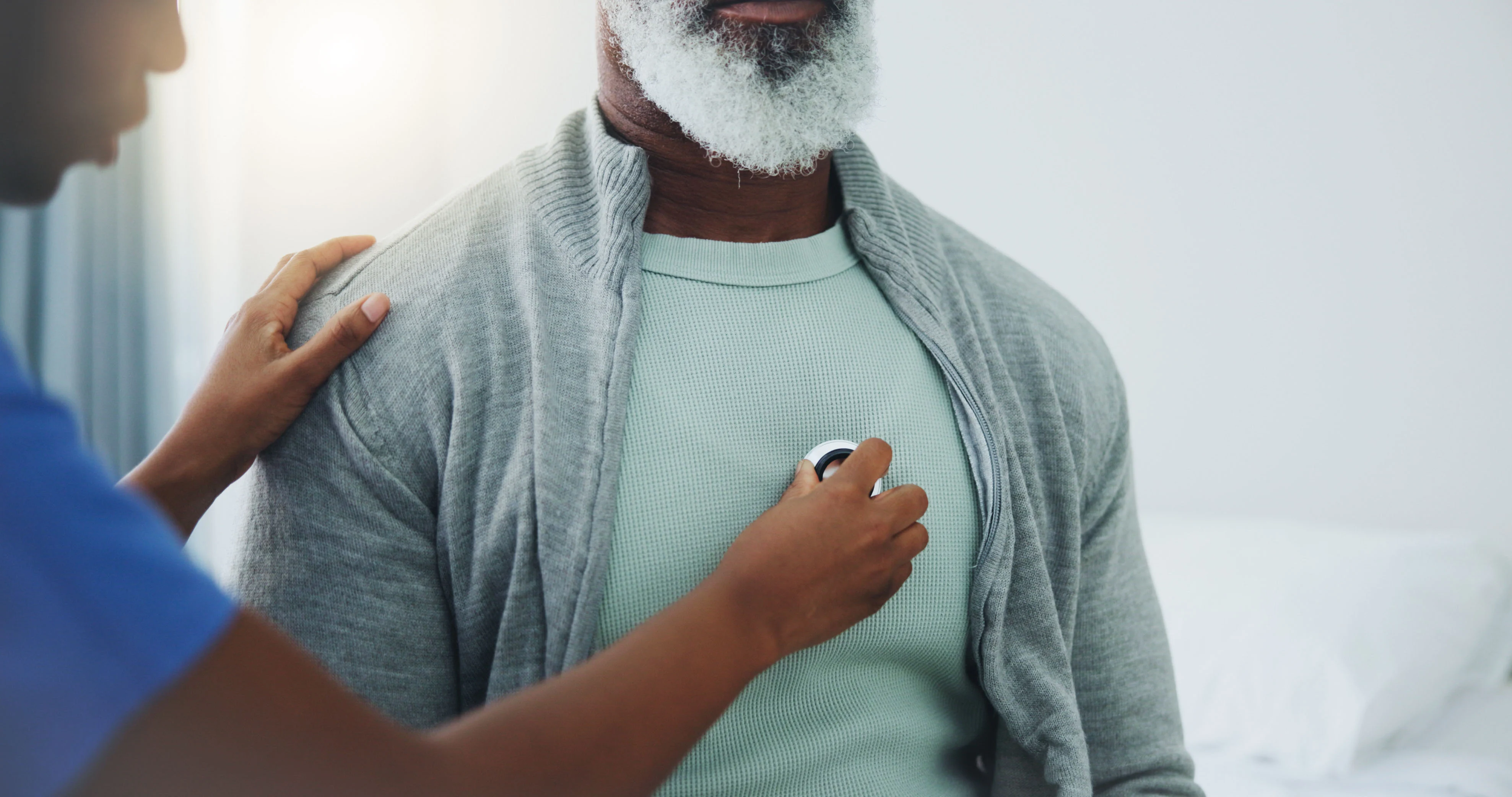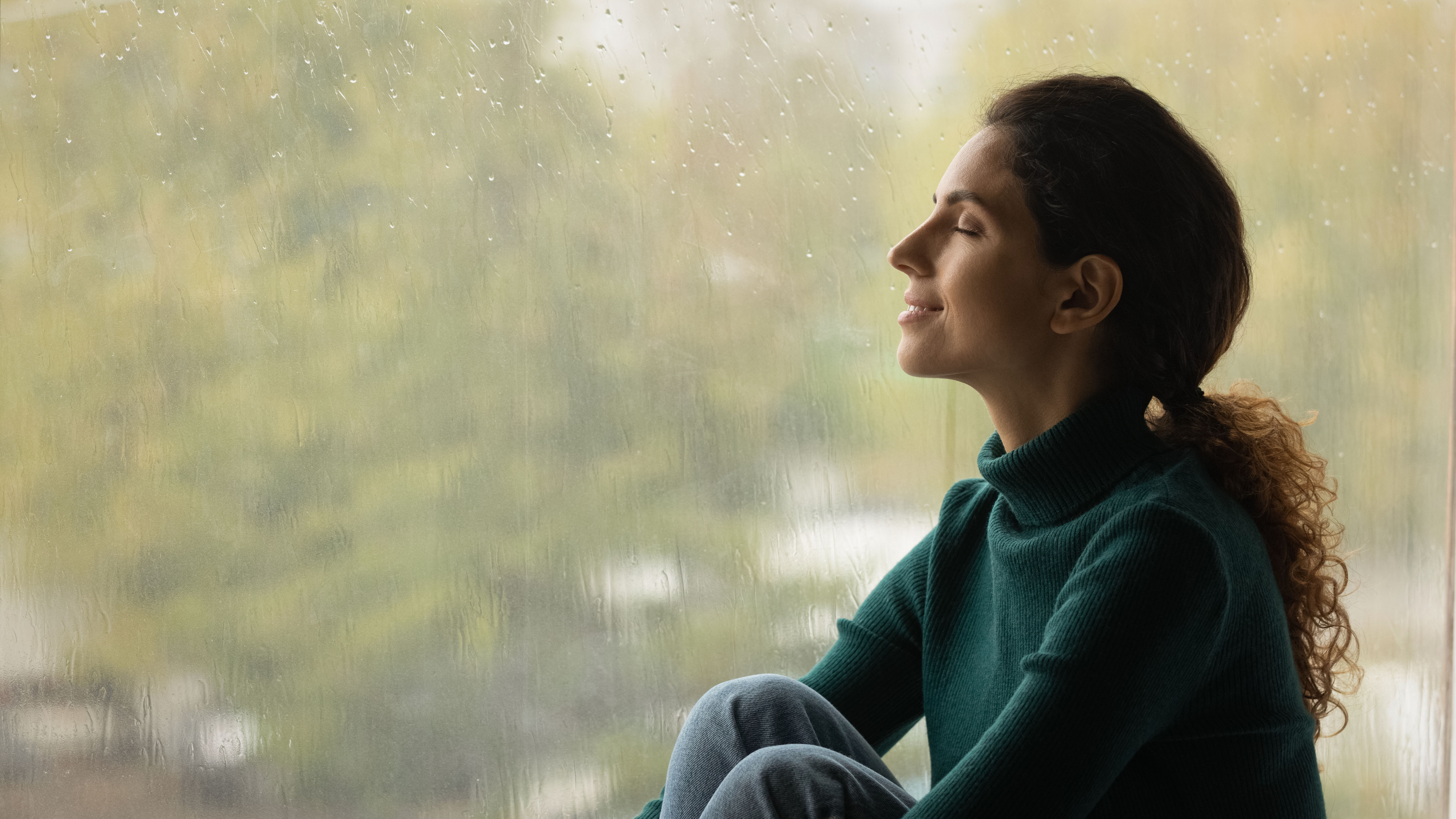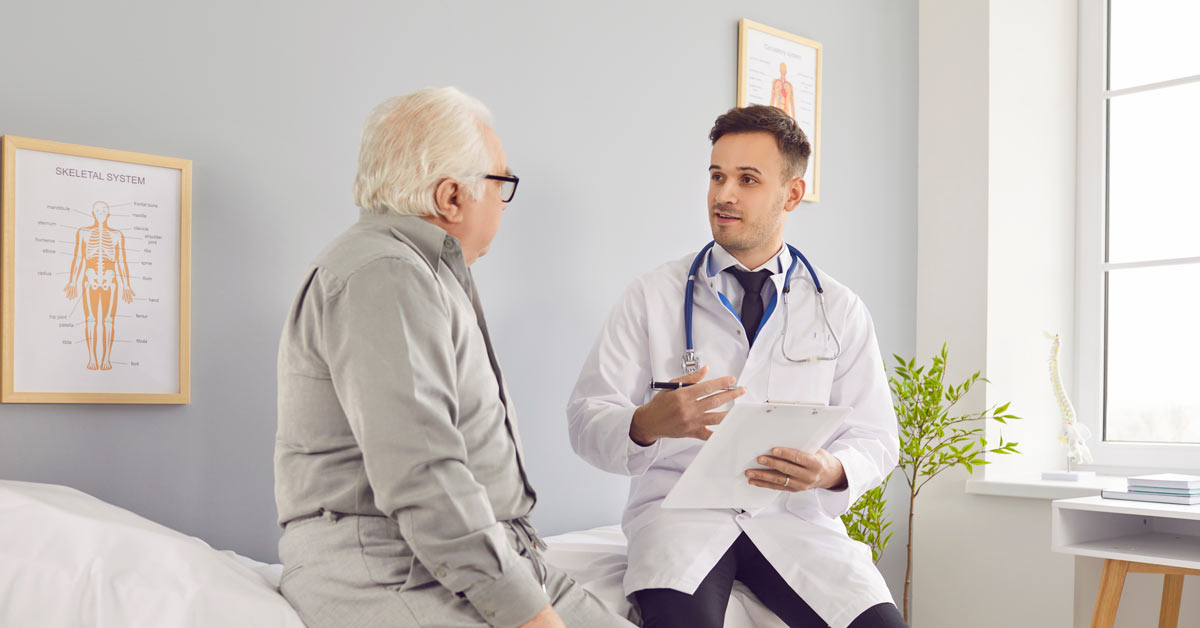By Managing Your Sleep Apnea, You Can Also Lower Your Blood Pressure.
Sleep apnea and high blood pressure (also called hypertension) are chronic conditions that affect millions of Americans every day.
Is there a connection between the two? Absolutely. Research reveals that sleep apnea can increase the risk of high blood pressure. In fact, people who get fewer than six hours of sleep each night are 20% more likely to have high blood pressure.
Registered sleep technologist and vice president at Apria, Robert Miller says, “Getting a good night’s sleep every night is essential to your heart health and well-being.”
The good news: there is a treatment for sleep apnea that can help lower your blood pressure!
What is Sleep Apnea?
Sleep apnea happens when a person’s breathing stops or is interrupted during the night, causing poor sleep, reducing the flow of oxygen to vital organs, and leading to serious health consequences.
The two most prevalent forms of sleep apnea are obstructive sleep apnea (OSA) and central sleep apnea (CSA). Of the two, only OSA is linked to high blood pressure.
Obstructive sleep apnea (OSA)
When people talk about “sleep apnea,” they’re generally referring to OSA because it’s the most common form. Today, up to 37% of American adults have OSA.
OSA happens when the airway at the back of the throat becomes blocked, causing a temporary lapse in breathing. Your brain senses this and briefly wakes you to reopen your airway. You might snort, choke, or gasp. It happens so quickly that you don’t even remember it. This pattern can repeat itself five to 30 times or more every hour throughout the night.
What is Hypertension?
Blood pressure is created by the force of blood pushing through your veins. When that force stays high over a long time, your heart must work harder to push blood through your body. This creates a condition called hypertension.
As many as 47% of American adults have high blood pressure. And most don’t even know they have it because it may have no visible symptoms or signs. That’s why hypertension is often called the “silent killer.”
This condition is usually diagnosed when your doctor checks your blood pressure. If left untreated, hypertension can lead to heart disease, stroke, dementia, vision loss, and kidney failure.
Apria’s Robert Miller adds, “Typically, hypertension can be managed with the use of medications, exercise, weight control, and diet."
How Does Sleep Apnea Affect Blood Pressure?
Studies demonstrate that 30–50% of people with hypertension have sleep apnea.
Sleep apnea affects blood pressure in many ways:
- Sleep deprivation activates our sympathetic nervous system, which plays an important role in our body’s “fight or flight” response. In stressful situations, this system triggers various physical reactions, including faster heart rate, increased metabolism, and dilated pupils. It also releases stress hormones such as dopamine and epinephrine, which cause your blood pressure to spike.
- When most people sleep, their blood pressure drops 10-20%. This is called “blood pressure dipping.” In people with OSA, blood pressure dips less than 10%. When they wake in the morning, their blood pressure surges.
- Because slowed or disrupted breathing decreases blood oxygen, your brain sends signals to increase your blood pressure and heart rate to help your body get the oxygen it needs.
- Research suggests that severe OSA causes medication-resistant high blood pressure.
- The cycle of stopping and starting breathing causes a person to wake up throughout the night, further spiking blood pressure.
- OSA is linked to obesity, which further strains the heart and elevates blood pressure.
- OSA not only affects blood pressure at night but also increases blood pressure during the day.
CPAP: Proven to Improve Sleep Apnea and Hypertension
CPAP therapy—continuous positive airway pressure—not only improves sleep quality; it also helps control blood pressure in people with hypertension.
CPAP devices are considered the “gold standard” for treating sleep apnea. There are more than 8 million CPAP users in the US.
CPAP involves wearing a mask over your nose or mouth while you sleep. The mask is connected to a machine that delivers a constant flow of air to keep your airways open so you can breathe—and sleep—normally.
In addition to improving the quality and quantity of sleep, researchers have found that CPAP:
- Lowers blood pressure during the day and at night, especially in people with severe OSA
- Reduces stress hormones levels
- Is especially effective in people with medication-resistant hypertension
Take the Pressure Off
The more you know about sleep apnea and how it affects your blood pressure, the better you will sleep at night—and the better you’ll feel during the day.
Mr. Miller sums up: “If you have any concerns, the first step is to talk to your doctor about getting a sleep test or a referral to a sleep specialist who will work with you to create a plan that will help you effectively manage your sleep apnea—and keep your blood pressure in check.”
Apria’s fully integrated sleep management program provides sleep experts, so you can work together to create a sleep hygiene plan that will address your specific needs to ensure you get the healthy sleep you need. To speak directly to a sleep expert, call 877-255-2426, or visit www.apria.com/locations to find your local Apria branch.

.png)



